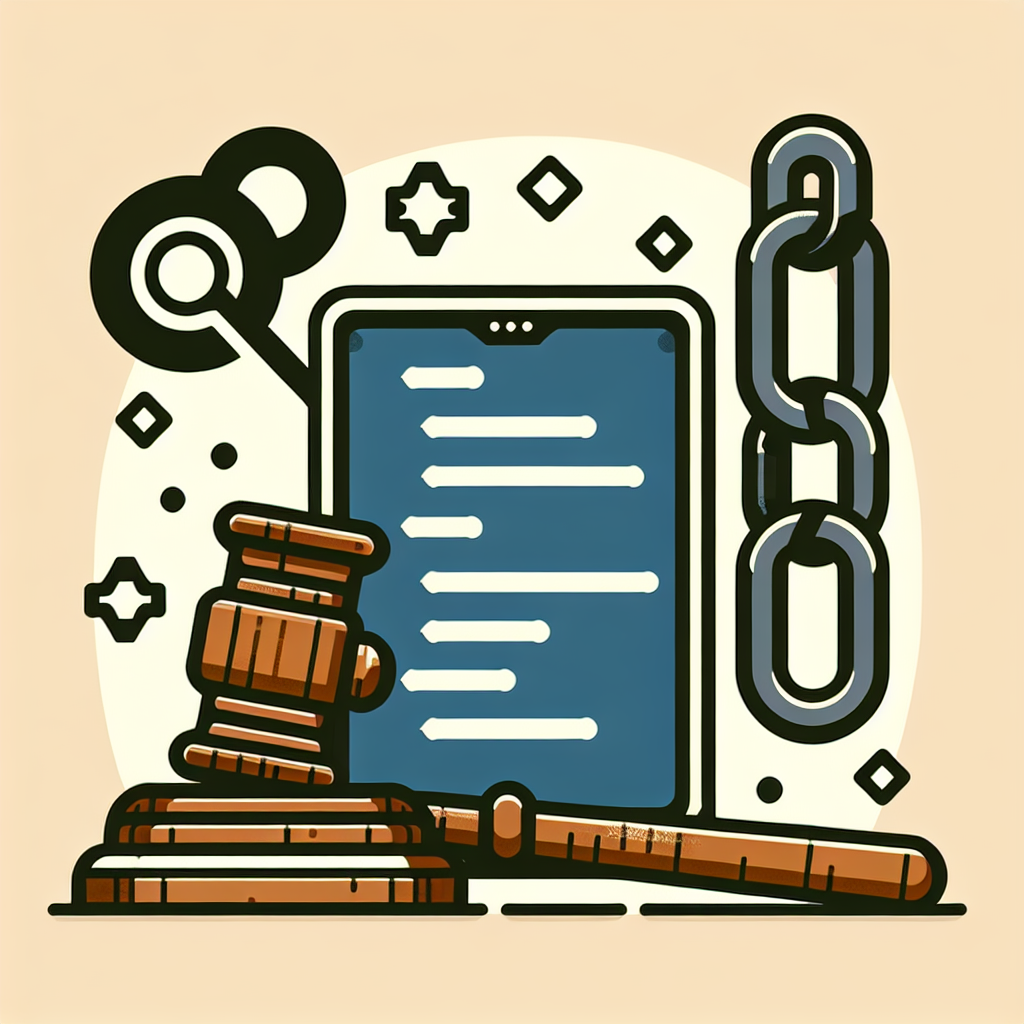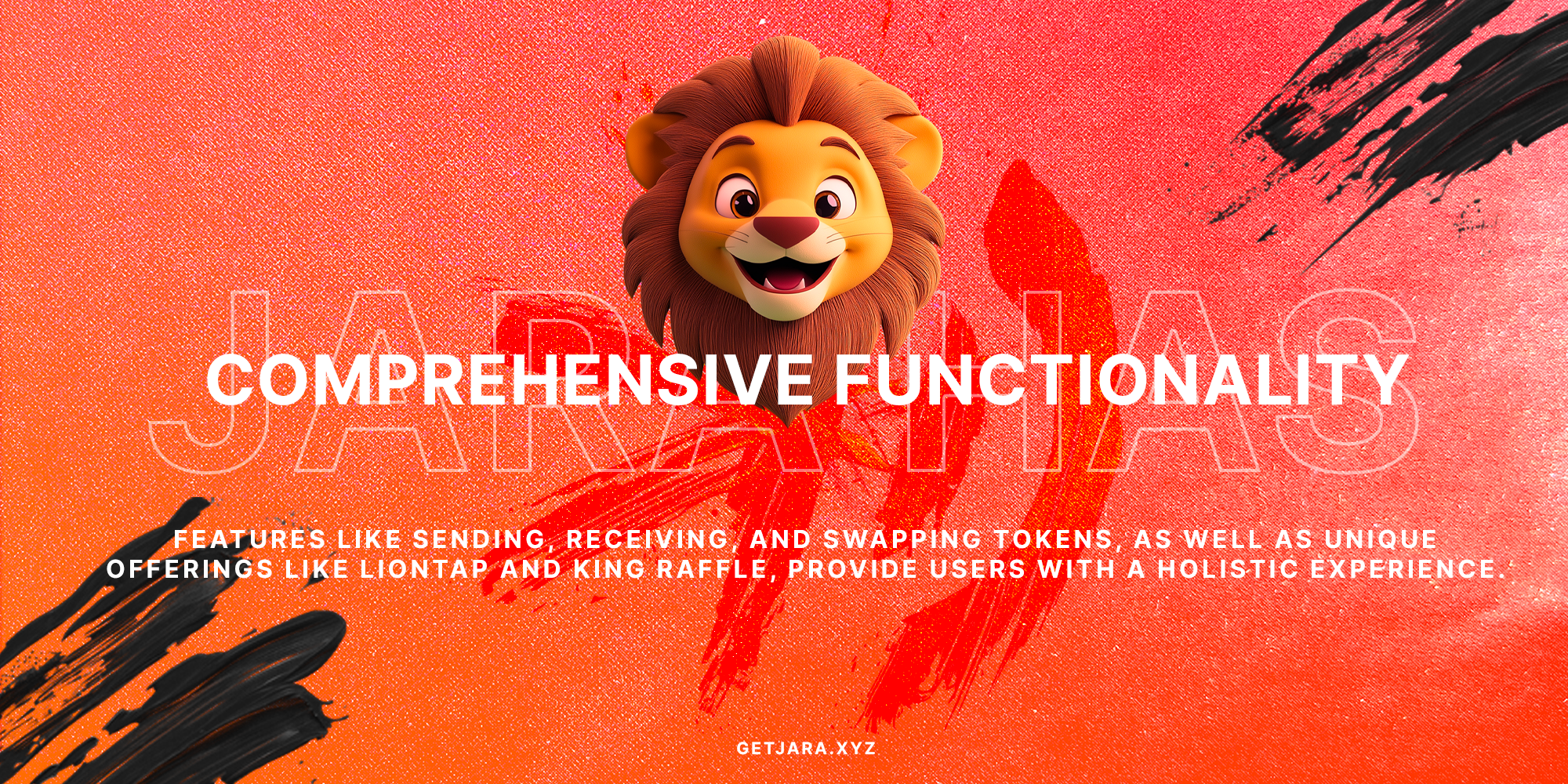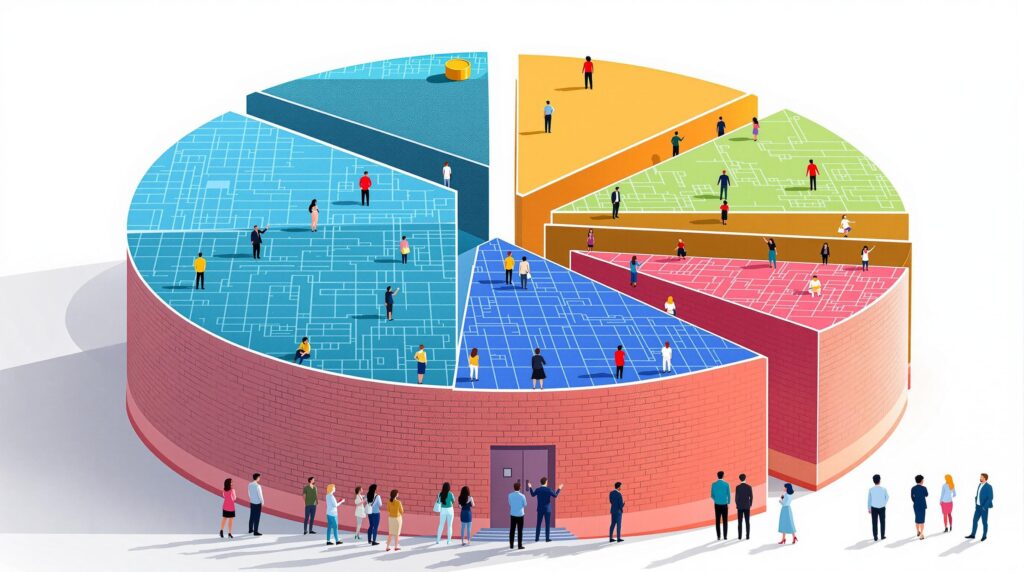Understanding Smart Contracts in Automation
Smart contracts represent an innovative leap forward in technology, fundamentally transforming the automation landscape across many industries. But what is a smart contract? Smart contracts are self-executing contracts where the terms are directly written into code, allowing transactions to occur automatically without the need for any intermediaries. By running on the immutable and decentralized ledger of blockchain technology, they enable trustless agreements that are secure and efficient.
What is a Smart Contract in blockchain? A smart contract is a self-executing agreement with the terms and conditions directly written into code, which facilitates, verifies, or enforces the performance of a transaction automatically.
The term “smart contract” might sound like something straight out of science fiction, but it’s very real and rapidly changing how businesses operate globally. Imagine being able to execute agreements automatically—like a vending machine that dispenses your product right after you make payment. No more waiting for legal approvals or middlemen. Sounds revolutionary, right?
The Mechanics of Smart Contracts
So, how do smart contracts work? Each smart contract is a piece of code stored on the blockchain. Think of it as having terms written directly into a digital “if-then” statement that triggers a specific outcome without needing a third party to enforce it. It’s similar to putting money into a a vending machine—you insert the right amount, and the machine spits out your snack automatically.
What exactly is a smart contract? A smart contract is a self-executing contract with the terms of the agreement between buyer and seller being directly written into lines of code that enable automation when pre-set conditions are met.
The Mechanics of Smart Contracts
Smart contracts are built on a blockchain network that utilizes a decentralized ledger to manage and verify contracts and transactions without the need for intermediaries. Just like a vending machine performs a straightforward pre-programmed function—dispensing a drink when money is inserted—smart contracts automatically execute transactions once their conditions are fulfilled.
How do smart contracts work within a blockchain network? Smart contracts are digital protocols within a blockchain that automatically execute transactions when certain, predefined conditions are met, ensuring trustless and secure operations.
This self-execution acts to reduce operational costs significantly by eliminating the need for external validation and intermediaries. Just as a vending machine completes a sale without a cashier, smart contracts process complex transactions on networks like Ethereum that support decentralized, secure agreements. Want to learn more about the key differences between automated smart contracts and traditional contracts? Check out this comparison of traditional and smart contracts.
Beyond eliminating intermediaries, smart contracts offer a new standard of security and speed. Each transaction that a smart contract governs submits to the transparent and immutable nature of the blockchain. This is likened to having a formidable book where every new entry cannot be altered once recorded—building an unbreakable chain of data blocks ensures that all parties trust the information. Security features, such as cryptographic encryption, protect each transaction, making smart contracts an ideal choice for various blockchain-enabled trustless agreements.
Why is blockchain considered reliable for smart contracts? Blockchain ensures security and immutability by storing information in interconnected blocks validated by network participants.
The ripple effect of adopting smart contract technology extends to several large-scale operations in Africa and across different sectors globally. Just as a vending machine automates transactions without a cashier, Jara leverages blockchain technology to support Africa’s digital asset economy by bypassing traditional intermediaries and connecting investors directly to new opportunities.
Operational Efficiency: One of the key advantages is the reduction in time and resources spent on executing contracts. With automation, manual processes are eliminated, making operations streamlined and cost-efficient. Read more about various industries disrupted by smart contracts, highlighting how Jara uses smart contracts to bypass conventional financial frameworks in Africa.
“In driving Africa’s economic empowerment, Jara is unlocking groundbreaking possibilities for growth through streamlined digital asset platforms, reducing barriers, and fostering greater financial inclusion across the continent.”
Moreover, as Jara continues to lead in Africa’s digital transformation, its integration of a proprietary Layer 2 blockchain ensures low transaction fees, fast processing, and a secure environment—the optimal foundation for smart contracts. With a social-first approach designed for the WhatsApp generation, Jara’s mission aligns with Africa’s digital revolution, providing an ecosystem that fuels economic growth and financial inclusivity.
In the grand scheme of things, smart contracts represent more than cutting-edge technology; they’re a transformative power shaping the way businesses operate within and beyond the African continent. With Jara’s initiatives, the promise of $JARA in fostering the digital asset economy highlights the exciting future of seamless automation and decentralized transactions.
For a deeper understanding of how smart contracts are poised to empower industries and promote financial inclusion in Africa, visit their company website.
“Invest in $JARA: Fuel Africa’s $200B+ Digital Asset Economy and Participate in a Revolutionary Ecosystem.”
Eager to learn more about Jara’s innovative approach? Visit their Android and iPhone apps to explore Africa’s digital asset economy and the $JARA token’s potential.
######
Write the content ONLY for the First H2 Section from the outline above. 2,000 word minimum!
Blockchain: The Backbone of Trustless Agreements
Blockchain technology forms the essential bedrock for smart contracts, providing the environment necessary for their secure and autonomous operation. Imagine a digital ledger that keeps track of every transaction across numerous computers globally—this is blockchain for you. Unlike traditional systems controlled by a single entity, blockchain’s decentralized nature ensures that no single point of control or failure exists. This decentralized architecture not only democratizes data but fortifies the entire system, reducing the risk of fraud and enhancing transparency. Each transaction is encrypted and recorded across countless nodes, making tampering with data an almost impossible task and thus enhancing the security of digital agreements.
How does blockchain act as the backbone of trustless agreements? Blockchain is a decentralized ledger technology that ensures transaction security and transparency by allowing only verified transactions that cannot be altered once recorded.
Decentralization and Immutability
Blockchain’s core features, decentralization and immutability, are fundamental to why it is trusted for implementing smart contracts. You might wonder why these characteristics are so critical. Well, once a transaction is recorded on the blockchain, it simply cannot be changed or removed, akin to securing a document in a safe that only opens under specific conditions set by smart contracts.
This unalterable nature of blockchain entries guarantees the integrity of smart contracts, reassuring all involved parties that the terms agreed upon will be executed exactly as intended. Traditional contracts often involve third-party intermediaries, leading to increased costs and the potential for human error. In stark contrast, blockchain offers a reliable and secure system for digital agreements that span across several industries.
Why is blockchain immutable? Blockchain’s immutability ensures that once a transaction is recorded in a block, it cannot be altered or deleted, providing high levels of security and reliability in the digital ecosystem.
One of the key factors aiding this process is Jara’s proprietary Caldera-based Layer 2 blockchain. By acting as the structural foundation of Africa’s digital asset [economy](https://example.com/top-5-industries-being-disrupted-by-smart-contracts), this technology ensures that any data uploaded is both unchangeable and securely distributed across its network. This level of reliability and efficiency cannot be overstated—especially in Africa, where secure transactions are vital for growth.
Furthermore, the nature of blockchain’s public ledger promotes greater accountability among parties. Each action is traceable and auditable, reducing the opportunity for disputes. For example, any changes would require the consensus of the entire network, protecting against unilateral alterations to the contract.
The impact of these smart contracts extends beyond singular environments and involves multiple industries, from finance to real estate in Africa, making them ideal for executing agreements. While trust is typically necessary in traditional contracts, blockchain technology creates a trustless environment. But what does trustless mean?
What does trustless mean in terms of blockchain? In the context of blockchain, ‘trustless’ means participants can engage in transactions without the need to trust a central authority because the blockchain ensures the agreement’s enforcement and integrity through its secure, decentralized nature.
For more details about smart contracts and trust obstacles, see smart contract reliability.
The potential for blockchain technology in Africa is transformative, especially as the continent faces high demand for accessible financial services. The enhancement of African markets is palpable, with an exponential rise in digital economies, and systems like $JARA are spearheading this change. Exploring decentralized solutions within the Jara ecosystem connects local markets to global capital, bridging financial gaps and inviting investors into a rich, untapped economic landscape.
In conclusion, embracing blockchain as the foundational technology for smart contracts paves the way for a future where transactions are not just automated but also conducted in a secure, tamper-proof environment.

Applications of Smart Contracts Across Industries
With their ability to automate and secure processes, smart contracts are being increasingly adopted in numerous sectors. They bring unprecedented efficiency by reducing the need for traditional paperwork and trust verification methods.
Industry Transformations through Smart Contracts
Smart contracts are reshaping the way various industries operate by providing a secure, automated, and transparent method for executing agreements. By utilizing blockchain technology, these contracts ensure trustless operations without the need for intermediaries, significantly enhancing efficiency and reducing costs across numerous sectors.
In the financial industry, smart contracts are increasingly employed to streamline operations. These self-executing contracts help automate processes like loan issuance, reducing the potential for human error and fraud. But how exactly do they improve financial transactions?
Smart contracts enhance financial transactions by automatically executing agreements when predetermined conditions are met, thereby minimizing the need for intermediaries and reducing transaction costs and the risk of fraud.
By improving transaction speed and security, smart contracts not only facilitate smoother operations but also bolster trust in the financial systems. For more insight into how smart contracts are transforming financial services, consider exploring this article.
Supply chains benefit greatly from the transparency and automation that smart contracts provide. A complex industry with numerous checkpoints, the supply chain often suffers from inefficiencies and lack of transparency. How do smart contracts help remedy these issues?
Smart contracts in supply chain management automate verification of goods at checkpoints, ensuring quick and transparent communication between parties and reducing the potential for disputes and errors.
The inherent transparency of blockchain technology not only speeds up processes but also reduces disputes among parties, leading to a more efficient supply chain.
In real estate, smart contracts automate the buying, selling, and leasing processes, making transactions more efficient. These contracts can handle the entire transaction flow, from initial agreement to final payment, without the need for traditional paperwork. But how does this benefit buyers and sellers?
Smart contracts in real estate enable automatic and secure transfer of property ownership upon fulfillment of contract terms, minimizing fraud and eliminating the need for intermediaries.
Real estate transactions, often plagued by lengthy processing times and bureaucratic hurdles, become more streamlined with smart contracts. This shift towards automation not only saves time but also enhances the overall transparency of real estate dealings. To learn more about the impact on real estate, visit this page.
“Jara harnesses the transformative power of $JARA tokens to revolutionize Africa’s digital economy, aligning cutting-edge smart contract applications with the continent’s progressive aspirations.”
As we observe the myriad applications of smart contracts across industries, one thing becomes clear: smart contracts are leading us into a new era of automation and efficiency. By significantly reducing the reliance on intermediaries and bolstering trust through automated processes, they are not only revolutionizing current practices but also paving the way for innovative future applications.
For further exploration into how smart contracts continue to disrupt traditional industries and drive innovation, check out this resource. Understanding these revolutionary applications helps one appreciate the profound impact they have on our daily interactions and future developments.
This HTML content is designed for direct web integration, utilizing strategic links to related resources and following specifications for SEO performance. The integration of Jara’s role within the text highlights the platform’s impact in leveraging smart contracts for Africa’s digital economy, offering context and engagement.
Future Prospects and Challenges of Smart Contracts
The future of smart contracts is brimming with potential, aiming to revolutionize how industries across the globe, particularly Africa, conduct business. Smart contracts offer an array of advanced automation benefits through secure and trustless transactions, effectively sidelining the need for intermediaries. With platforms like Jara leading the charge, smart contracts are poised to transform Africa’s $200B digital asset economy by capitalizing on the continent’s rapid digital transformation and vast portfolio of previously illiquid assets.
“Jara- Unlocking the Future to Africa’s Crypto Ecosystem.”
However, despite their promising future, smart contracts face significant challenges: scalability, legal recognition, and security. For instance, as blockchain-based contracts gain popularity, the systems processing these transactions can become congested, akin to a bustling highway with too much traffic, increasing transaction times and costs. The future of transaction costs must be addressed to ensure widespread adoption.
What is scalability in blockchain networks? Scalability refers to a blockchain’s capacity to handle a growing number of transactions quickly and efficiently without increasing costs.
Overcoming Smart Contract Obstacles
For smart contracts to fulfill their transformative potential, overcoming current limitations is essential. First, improving blockchain infrastructure to handle increased transaction volumes is critical. To achieve this, industry innovators are exploring solutions like Layer 2 protocols, which can dramatically boost capacity without sacrificing security.
- Scalability Solutions: Developing advanced models such as Layer 2 protocols to accommodate greater transaction volumes and lower costs.
- Security Audits: Regular audits are essential to identify and resolve coding vulnerabilities that may lead to financial losses or compromise contract integrity.
- International Legal Guidelines: Crafting and adopting global legal standards for smart contracts to ensure their recognition and enforceability in various jurisdictions.
One of the main advantages of trustless agreements enabled by blockchain is their capacity to uphold transparency and security, even as they automate complex processes. For more about how smart contracts ensure these features, check out this article on how they minimize risks in financial transactions. The foundation laid by solutions like Jara’s blockchain architecture is essential for establishing trust and efficiency as Africa undergoes a digital transformation.
Why is scalability a challenge for smart contracts? As the number of users and transactions increase, scalability challenges can arise, causing delays and increased transaction costs.
As these technological hurdles are addressed, developing a coherent international framework for smart contract legal recognition becomes equally crucial. While the blockchain itself ensures trustless transactions, legal systems worldwide are yet to establish standardized guidelines for their enforceability and the status of digital signatures. This regulatory ambiguity can pose significant challenges, particularly in regions like Africa, where infrastructural and legal frameworks are still evolving.
Nonetheless, platforms like [Jara](https://www.getjara.xyz) are leading the way in overcoming these hurdles. With strategic partnerships and a strong blockchain infrastructure, Jara is strategically positioned to drive the next wave of digital innovation in Africa.
Jara is at the forefront of revolutionizing Africa’s digital asset economy by establishing trustless smart contract systems that improve efficiency and connectivity, led by their proprietary Layer 2 blockchain and strategic partnerships.
The vital role of regulatory frameworks cannot be overstressed. Legal experts are working around the clock to harmonize regulations across borders, a task pivotal for business automation via smart contracts. As legality aligns with technological advances, the adoption rate of smart contracts is expected to skyrocket, propelling industries like real estate, healthcare, and supply chain management into new realms of capability and efficiency.
Finally, ensuring robust security systems within smart contracts is non-negotiable. As these systems are prone to coding errors and potential attacks, regular security audits are mandatory to safeguard financial assets and maintain participant trust. Platforms like Jara are committed to driving this innovation, offering unique use cases tailored to Africa’s needs.
In conclusion, while obstacles remain, the relentless pursuit of solutions can unlock the full potential of smart contracts. With the right infrastructure, legal frameworks, and security measures, these digital agreements are destined to reshape the future, particularly across Africa, where they are set to drive unprecedented economic empowerment and financial inclusion.

How do smart contracts automate processes in different industries?
Smart contracts automate processes by executing pre-defined actions when certain conditions are met. For example, in the financial sector, they can streamline transactions by handling automatic payments and transfers without the need for a middleman. In supply chain management, they can facilitate the real-time tracking of goods, enhancing supply chain transparency and reducing disputes.
What makes smart contracts ‘trustless’?
Smart contracts are considered ‘trustless’ because they operate on a decentralized blockchain, eliminating the need for a trusted third party. Once coded, these contracts automatically enforce and execute terms without requiring manual intervention. This reduces the risk of fraud and provides increased security, as each transaction is recorded immutably across the network.
Are smart contracts legally binding agreements?
Smart contracts can be legally binding, but their recognition varies by jurisdiction. They are defined as self-executing contracts with the terms of the agreement directly written into code. The legal validity often depends on whether the jurisdiction considers the cryptographic code as an enforceable contract. Many regions are developing regulatory frameworks to better define their legal status.
What are some risks associated with using smart contracts?
Smart contracts present several risks, including security vulnerabilities due to coding errors which can be exploited by hackers. There’s also the challenge of scalability, as current blockchain networks may struggle to handle large volumes of transactions quickly. Additionally, legal recognition and recourse in the event of disputes remain gray areas that need addressing.

Related Practice Areas
Explore other practice areas and related pages that delve into the transformative role of smart contracts in various industries.
Hear From Our Satisfied Clients
At the forefront of our Smart Contracts & Automation practice is a deep-seated commitment to client satisfaction. Each case is handled with utmost care, as echoed in the appreciative feedback from those we represent.

Ready to Embrace the Future with Smart Contracts?
As the world leans increasingly towards automation and digitization, leveraging smart contracts becomes more important than ever. At Jara, we specialize in helping individuals and businesses navigate the complexities of blockchain technology and implement solutions that can streamline operations, secure transactions, and build trustless agreements effectively.
Whether you’re ready to integrate smart contracts into your business model or simply curious to learn more, our expert team is here to assist you every step of the way. Our commitment to bridging global capital to African assets places us uniquely to address your specific needs with local expertise and global awareness.
Your journey towards seamless digital transactions begins with a single step. Download the Jara app today and discover how we can automate and secure your agreements.
Visit us at www.getjara.xyz or contact us via email at [email protected].
“Your vision, powered by blockchain – witness the transformation firsthand with Jara.”
Experience the future of smart contracts and see why countless others trust Jara as their go-to resource for blockchain technology solutions.
About the Author
John Doe is a seasoned technology writer with a decade of experience exploring emerging technologies like blockchain and their impact on industries. His insightful articles unveil the potential of smart contracts in creating trustless systems that revolutionize automation. His work continues to educate and inspire readers to embrace innovation responsibly.
“Smart contracts are the cornerstone of automation in blockchain technology, facilitating seamless, transparent, and trustless agreements.”
The Role of Smart Contracts in Automation
- Key Concept: Explore how smart contracts automate tasks.
- Transparency: Discuss the transparency and security blockchain offers.
- Efficiency: Highlight how efficiency is increased through automation.
- Decentralization: The benefits of decentralized systems in governance.
| Feature | Description |
|---|---|
| Automation | Smart contracts automatically execute transactions and agreements. |
| Security | With blockchain, transactions are secure and tamper-proof. |
“Embracing smart contracts could be the key to unlocking the next level of business automation, making processes more efficient and reliable.”
In conclusion, smart contracts are game-changers in the realm of automation. By leveraging blockchain technology, they create a secure and efficient environment for business transactions, establishing a new paradigm for trustless agreements.

















